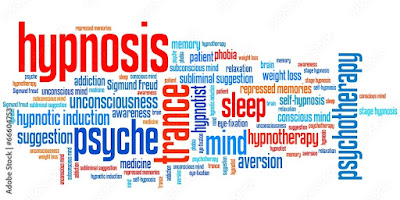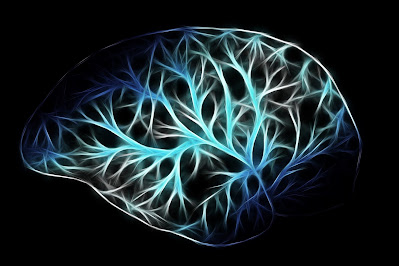Calcutta's successor, Kolkata, is the third-most populated metropolitan area in India and serves as the country's economic, cultural, and educational hub for the Eastern region. Numerous Nobel laureates have contributed to Kolkata's culture, making it a leader in the fields of drama, the arts, theatre, and literature.
However, speaking of the Hypnosis Instruction Institute in Kolkata, people find it difficult to obtain adequate training in hypnosis. Most famous institutions offer their hypnosis training courses in Mumbai, Pune, Bangalore, Delhi, and Ahmedabad. Thus, you should opt for the Best Hypnosis Training Institute in India rather than Hypnosis Training in Kolkata.
Hypnosis Myths: 20 Myths
A number of myths regarding hypnotherapy are spread, primarily as a result of theatrical performances where actors make absurd decisions while being hypnotized. Among these 20 lies:
- Hypnosis is either ineffective or a rapid fix.
- An independent intervention is a hypnosis.
- Either one can be hypnotized or one cannot be hypnotized at all.
- There are significant differences between hypnotic and non-hypnotic suggestibility.
- People with hypnotic abilities enter a trance.
- A "hypnotic characteristic" is substantially correlated with hypnotic suggestibility.
- Only compliance or feigning are indicated by responsiveness.
- The suggestibility of hypnosis cannot be changed.
- To get excellent responsiveness, hypnotists must be highly skilled.
- Hypnotic inductions can be very effective or very ineffective.
- While under hypnosis, peripheral awareness is considerably diminished.
- A strong hypnotic response requires focused attention.
- Hypnosis has effects because it causes relaxation.
- Sleep-like conditions are hypnotic.
- Similar to mindfulness are hypnotic states.
- There are some reliable indicators of the hypnotic state.
- A trance is what causes the involuntary behavior that is observed during hypnosis.
- Hypnotic suggestions are impossible to ignore.
- Reliable memory enhancement during hypnosis is possible.
- Recovery of distant memories is aided by hypnotic age regression.
These are some frequent misconceptions that people hold, yet hypnosis is significantly different from these ideas. Hypnosis is a technique or procedure for changing negative subconscious thoughts and treating long-standing psychological problems. It is a potent method for altering your entire way of thinking.
Let's examine the hypnosis in detail
A night of deep sleep is not what hypnosis is. Although a trance-like state is induced during the process, the client is actually in a more alert state and is only paying attention to the hypnotist's words. Pre-hypnotic induction in this state allows for the revelation of the subconscious mind. The patient might receive ideas, thoughts, and lifestyle changes from the practitioner.
In the calm trance-like state of hypnosis, the body is liberated from conscious control, which causes the breathing to slow and deepen, the heart rate to slow, and the metabolic rate to slow. The perception of pain can become less sharp and the awareness of unpleasant symptoms, such as nausea or indigestion, can be reduced thanks to similar alterations along neural pathways and hormone channels.
How is hypnosis performed?
Six steps make up the hypnosis process, which you will practice during the session.
1. Physical relaxation (Guided Instructions & Techniques for Testing)
2. Mindfulness Exercises (Guided Instructions & Techniques for Testing)
3. Techniques for Deepening - (For Inducing Trance State)
4. Before Induction (Leading to Trance State)
5. The actual work of change (Seeding Process)
6. Following Induction (To Bring You out of a Trance State)
In order to give control to the subconscious mind, which has great power, the practitioner creates a deep state of hypnosis in which the conscious mind withdraws. Our auditory capacities, cognitive abilities, and creative faculties all grow sharper and more acute during hypnosis. The therapist just assists in the healing process by making pertinent verbal suggestions; the patient actually performs the healing process on himself or herself.
You must have a thorough understanding of Direct Hypnosis, which you will employ when executing the Hypnosis procedure, in order to be committed to putting these steps into practice.
What advantages does direct hypnosis offer?
By implanting solutions for issues and necessary habits deep inside the subconscious mind, you may transform both.
You can create a solid foundation of optimistic beliefs in your subconscious mind to create a better future.
Without making an attempt, you can flood the subconscious mind with suggestions or thoughts.
You can use hypnosis to calm your constant chattering mind.
You can speak with the subconscious mind directly.
Why would you want to learn hypnosis?
In today's world, where everyone is continuously chasing money and higher living standards, people frequently plunge into a sea of tension and anxiety. Depression is a common condition, particularly in adults, and it frequently prompts people to take part in stress-relieving activities that are bad for their health and for society as a whole. Hypnosis stepped in to help, hoping to release the worry and uncertainty ingrained in a person's brain and heal them within.
The brain is the most mysterious object on earth, and not even scientists have completely decoded it. Hypnosis is a specialized area of psychology that tries to assist people with anxiety, traumatic experiences, phobias, addiction, labor pains, and other diseases.
Are You a Good Fit for a Career in Hypnotherapy?
Whether you choose to concentrate on medical uses like treating asthma or headaches, or on counseling applications like curing addictions or treating eating disorders, hypnotherapy training can significantly advance the careers of practitioners interested in holistic health care.
Even acupuncturists and massage therapists can utilize hypnotherapy to help customers unwind and speed up healing. In the end, though, the hypnotherapist is assisting patients to assist themselves by utilizing their own mental healing capacities.
Although that might sum up the stereotypical act of a stage hypnotist, the therapeutic profession of hypnotherapy is better described as a concentrated state of relaxation where a person is more receptive to suggestions.
In order to facilitate psychotherapy, encourage stress or pain relief, change bad habits, and speed up the healing process for illnesses and injuries, medical and mental health professionals with hypnotherapy training aid patients in achieving this calm state.
For non-medical students, we provide seven days of teaching (Basic Qualification 10th or equivalent). A certificate attesting to the completion of the hypnotherapy course will be issued to candidates who pass the practical test administered by our experts.
For further information on enrolling in the hypnosis course, contact hypnotherapyofficially@gmail.com.
I charge Rs. 35,000 for hypnosis with a medical background and Rs. 50000 for hypnotherapy without a medical background as my energy exchange.
LEARN, Hypnosis strives to replace unhelpful, harmful, and useless concepts with helpful, happy ones. In just three sessions once you complete my instruction, you will be able to treat any psychosomatic disorders. #Challange
Please contact us at +919748385701/9007588855 if you have any more questions.





.jpg)



